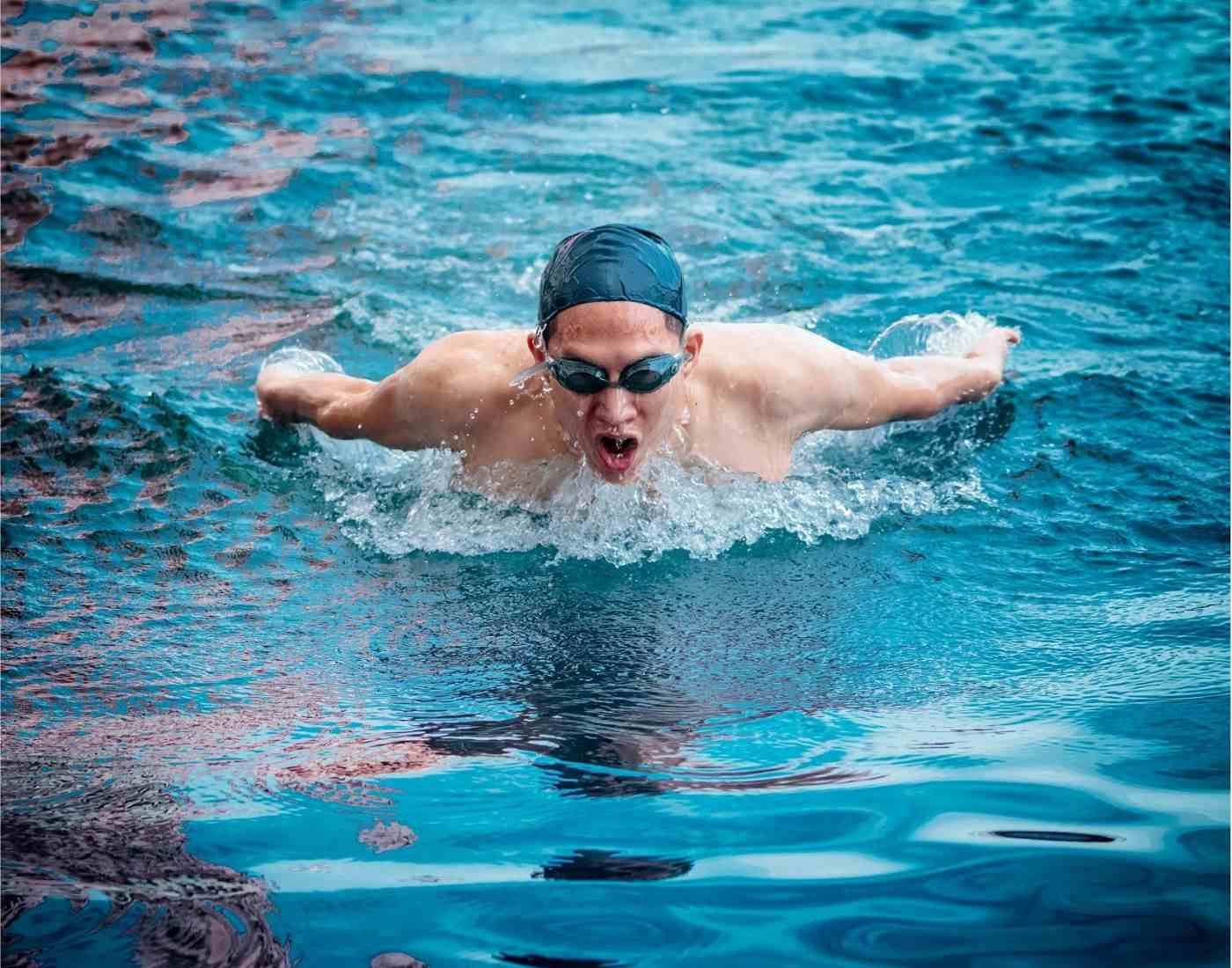1. The Evolutionary Roots of Swimming Swimming is more than just a recreational activity; it’s a skill ingrained in our evolutionary history. Explore how swimming has been essential for survival and leisure throughout human history.
2. The Physical Benefits of Swimming Dive into the myriad of health benefits swimming offers, from cardiovascular endurance to muscle strength and flexibility. Discover why swimming is often recommended as one of the best forms of exercise.
3. Mental Health and Swimming Learn about the therapeutic effects of swimming on mental health, including stress reduction, improved mood, and enhanced cognitive function. Dive into the science behind how swimming can positively impact mental well-being.
4. Getting Started: Basic Swimming Techniques For beginners, mastering fundamental swimming techniques is essential. Explore the basics of freestyle, breaststroke, backstroke, and butterfly, along with tips for proper breathing and body positioning.
5. Overcoming Fear of Water Many people experience fear or anxiety around water, but with patience and practice, it’s possible to overcome these obstacles. Discover strategies for conquering aquaphobia and building confidence in the water.
6. Swim Gear Essentials From swimsuits and goggles to swim caps and earplugs, having the right gear can enhance your swimming experience. Learn about essential swim gear and how to choose the best equipment for your needs.
7. Pool vs. Open Water Swimming Compare the benefits and challenges of swimming in a pool versus open water. Explore the differences in environment, safety considerations, and the overall experience of swimming in different settings.
8. Mastering the Flip Turn The flip turn is a crucial skill for efficient swimming, especially in competitive settings. Get step-by-step instructions on how to execute a perfect flip turn and improve your swimming performance.
9. Advanced Swimming Techniques Take your swimming skills to the next level with advanced techniques such as the dolphin kick, sculling, and underwater propulsion. Explore how mastering these techniques can enhance speed and efficiency in the water.
10. Swimming for Weight Loss Discover how swimming can be an effective tool for weight loss and management. Learn about the calorie-burning benefits of swimming and how to structure a swimming workout for maximum fat loss.
11. Preventing Swimming Injuries Swimming is generally a low-impact activity, but injuries can still occur, especially with improper technique or overtraining. Explore common swimming injuries and strategies for preventing them, including proper warm-up and cooldown routines.
12. The Joy of Water Aerobics Water aerobics offers a fun and effective way to get fit while enjoying the buoyancy and resistance of water. Learn about the benefits of water aerobics and sample some beginner-friendly exercises.
13. Swimming for Rehabilitation Swimming can be a valuable form of rehabilitation for individuals recovering from injuries or managing chronic conditions. Discover how aquatic therapy can improve mobility, strength, and overall quality of life.
14. The Competitive World of Swimming From local swim meets to the Olympic Games, competitive swimming is a globally recognized sport with a rich history and culture. Explore the various swimming disciplines and the training regimens of elite swimmers.
15. Swimming and Environmental Conservation As stewards of the environment, swimmers have a responsibility to protect the waters they love. Learn about the impact of pollution and climate change on aquatic ecosystems and how swimmers can contribute to conservation efforts.
16. Swimming Safety Tips Safety should always be a top priority when swimming, whether in a pool, lake, or ocean. Explore essential safety tips, including the importance of supervision, knowing your limits, and recognizing signs of distress.
17. Swimming for All Ages Swimming is a lifelong activity that can be enjoyed by people of all ages, from infants to seniors. Discover how swimming benefits different age groups and how to adapt swimming activities to meet individual needs.
18. Swim Etiquette: Rules of the Pool Every swimmer should be familiar with basic pool etiquette to ensure a safe and enjoyable swimming experience for all. Learn about common courtesy in the pool, including lane etiquette and sharing space with other swimmers.
19. The History of Competitive Swimming Trace the evolution of competitive swimming from its ancient origins to modern-day Olympic events. Explore key milestones in the sport’s history and the legendary athletes who have shaped its legacy.
20. Swimming for Cross-Training Swimming isn’t just for swimmers; it can also complement other forms of exercise and sports. Learn how incorporating swimming into your cross-training routine can improve overall fitness and performance.
21. Swim for Fun: Recreational Swimming Activities Swimming isn’t always about competition or fitness; it’s also about having fun in the water. Explore recreational swimming activities such as water games, snorkeling, and leisurely swims with family and friends.
22. The Science of Buoyancy Buoyancy is a fundamental principle of swimming that governs our ability to float and move through the water. Delve into the science behind buoyancy and how it influences swimming technique and performance.
23. Swimming Nutrition: Fueling Your Performance Proper nutrition is essential for swimmers to fuel their workouts and optimize performance in the water. Discover dietary guidelines for swimmers, including hydration strategies and nutrient-rich foods to support training and recovery.
24. Swimming for Social Connection Swimming isn’t just a solitary activity; it can also foster social connections and community engagement. Learn about swimming clubs, group workouts, and the camaraderie that comes with sharing a love for the water.
25. The Future of Swimming As we look ahead, swimming continues to evolve with advancements in technology, training methods, and environmental awareness. Explore emerging trends and innovations shaping the future of swimming worldwide.
